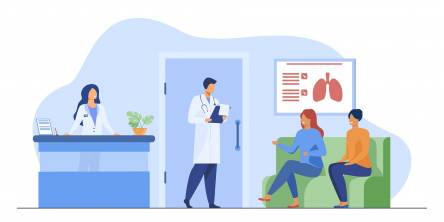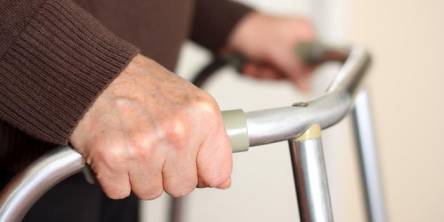Round-the-Clock In-Home Care: Understanding its Benefits
For individuals requiring extensive support and assistance with daily activities, in-home care is an invaluable resource. This level of care provides continuous support and supervision, ensuring that individuals receive around-the-clock aid in the comfort and familiarity of their own homes. Understanding the multitude of benefits offered by this comprehensive care approach sheds light on its importance in enhancing the quality of life for those in need.
Enhanced Comfort and Familiar Environment
The primary advantage of 24 hour in home care is the ability for individuals to remain in a familiar environment. Being surrounded by personal belongings, cherished memories, and the comfort of one's home significantly contributes to emotional well-being and mental health. This care model allows individuals to maintain a sense of independence while receiving the necessary support, fostering a higher quality of life.
Continuous Assistance with Activities of Daily Living
Round-the-clock in-home care ensures individuals receive continuous assistance with activities of daily living (ADLs) and instrumental activities of daily living (IADLs). From personal hygiene and mobility assistance to meal preparation and medication reminders, caregivers are present to provide support whenever needed. This level of assistance promotes dignity, autonomy, and safety for individuals who may require ongoing help.
Optimal Supervision and Safety Measures
The presence of caregivers throughout the day and night ensures optimal supervision and safety for individuals with medical conditions or mobility issues. Caregivers are trained to recognize potential risks and intervene promptly in emergencies. Their constant vigilance reduces the likelihood of accidents, falls, or other mishaps, providing peace of mind for individuals and their families.
Emotional Support and Companionship
Beyond physical assistance, in-home care offers emotional support and companionship. Caregivers form meaningful relationships with individuals under their care, providing social interaction, conversation, and companionship. This aspect of care contributes significantly to mental well-being, reducing feelings of loneliness or isolation commonly experienced by individuals needing constant care.
Customized and Personalized Care Plans
Each individual has unique care needs and preferences. in-home care allows for personalized care plans tailored to meet specific requirements. Caregivers adapt their approach based on individual preferences, health conditions, and evolving needs, ensuring that care that aligns with the individual's lifestyle and preferences is delivered.
Respite for Family Caregivers
In-home care also offers respite for family caregivers who might otherwise bear the responsibility alone. Family members or primary caregivers can take breaks, attend to personal matters, or simply rest assured that their loved ones receive continuous, professional care. This respite allows family caregivers to rejuvenate, preventing burnout and ensuring they can continue providing support effectively.
Medication Management and Health Monitoring
In-home care includes meticulous medication management and health monitoring. Caregivers ensure medications are taken as prescribed, manage refills, and track health indicators, such as blood pressure or glucose levels. This diligent oversight helps individuals adhere to their treatment plans and promptly addresses any health concerns.
Specialized Care for Chronic Conditions or Disabilities
Individuals with chronic conditions or disabilities benefit from specialized care delivered round the clock. Caregivers trained in handling specific conditions, such as dementia, Parkinson's disease, or disabilities, provide tailored assistance and interventions. This specialized care enhances the individual's comfort, manages symptoms effectively, and maintains a higher quality of life.
Assistance During Nighttime and Emergencies
The nighttime poses particular challenges for individuals requiring assistance. With in-home care, individuals have support during the night for restroom visits, bed repositioning, or addressing urgent needs. This continuous availability ensures that individuals feel secure and attended to, even during nighttime and unexpected emergencies.
Meal Preparation and Nutritional Support
Caregivers assist in meal preparation and nutritional support, ensuring individuals receive balanced and adequate nutrition. They accommodate dietary restrictions, prepare meals according to preferences, and encourage healthy eating habits. Proper nutrition is crucial for health, and caregivers play an imperative role in promoting healthy eating habits.
Facilitation of Physical Therapy or Rehabilitation Exercises
For individuals undergoing physical therapy or rehabilitation, in-home care facilitates adherence to exercise routines and therapy regimens. Caregivers assist in performing prescribed exercises, ensuring individuals follow rehabilitation plans meticulously. This support aids in faster recovery, improved mobility, and overall physical well-being.
Conclusion: The Value of Round-the-Clock In-Home Care
In conclusion, the benefits of in-home care are multifaceted and pivotal in maintaining the well-being of individuals requiring extensive support. This form of care ensures enhanced comfort, continuous assistance with daily activities, optimal supervision, emotional support, personalized care plans, and respite for family caregivers.
The provision of 24 hour in home care offers a holistic approach that focuses on physical needs and emotional and social well-being. By receiving comprehensive care within the familiar confines of their homes, individuals experience an improved quality of life, independence, and a sense of dignity.
Similar Articles
When choosing an assisted living community, it is essential to consider the type and quality of food offered. This is generally one of the first things people look at when they tour different communities because it can affect the quality of life for residents immensely.
Summers mean several things for several people - numerous enjoyable outdoor activities such as picnics, swimming, barbecuing, and going to the beach, among others. However, the rising temperatures can pose major health risks, particularly for the elderly.
Old age comes with its own set of problems and one of the most serious issues the elderly have to face is heart problems. While heart issues can affect anyone, the risk of cardiovascular disease goes up as you get older. In fact, more than 67% of people between the ages of 60-79 years suffer from some form of heart disease.
Dementia is a frightening condition with the primary symptom being declining memory loss and the overall inability to perform simple problem-solving tasks. Additionally, it impacts a person’s ability to think critically, whilst affecting the language patterns. It is a common occurrence among the elderly in society.
This article will show you the six important steps you should follow when hiring an in-home care agency. Learn here more about how to find the right in-home care agency near your area.
Sheltered accommodation is another in the list of long-term elderly care options as opposed to care homes, care in the community or living with family. Often it is called warden-controlled accommodation, as this is one of the benefits, there is a warden on site usually 24 hours, they often live on site.
A fundamental part of giving care is being a good communicator with the person getting care. Care is given with respect for the dignity of the person receiving care. The carer remains in contact with the primary health care provider, often a doctor or nurse, and helps the person receiving care make decisions about their health and matters affecting their daily life.
When you take a look around, you realize that the country is aging and getting a few more gray hairs. More baby boomers are entering early retirement and modern medicine is helping us to live longer into our golden years.
Mobility aids are the best medical products used by the disabled and elderly to walk easily, which are not capable to move or walk freely on their own. Today, the market is flooded with many kinds of mobility aids.









